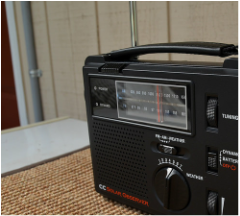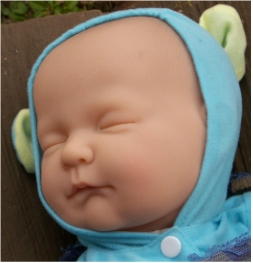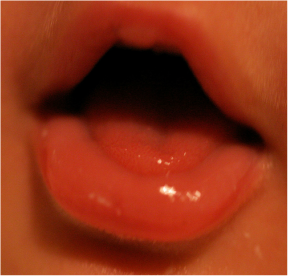
Because babies' Eustachian tubes are short and tilted upward (I need to talk to the Designer!), they collect fluid and when this fluid becomes infected, the misery index rockets up FAST. You know this. Been there, done that many, many times. [Mother's note: If you want to get an ER doctor's attention on a Friday night, take in a screaming 2-year old with a blazing ear infection. You get seen right away because a baby in pain is extremely stressful for patients with chest pain in the waiting or treatment rooms.]
Some professionals say that more than 5 infections before the age of 2 years results in the the greatest impact and some say that 5 episodes before 2 years is the cutoff. Regardless, the more diagnosed ear infections your child has, the greater the risk for speech problems, language processing disorders, hearing/auditory processing problems and subsequently, academic challenges and social deficits.
On more than one occasion, I had vigorous "discussions" with my pediatrician regarding the co-occurrence between our son's teething and his ear infections. The doctor said that the research indicated that teething does not "cause" ear infections, but they're correlated (happen around the same time). Makes sense because when a baby is teething, their gums are swollen, red, hot, and angry which encourages excessive saliva flow and babies do not have the motor coordination or planning skills to manage all of the flow. It's logical that teething contributes to the collection of fluid in the middle ear.

Unfortunately, you may not realize "what's going on" until they struggle with reading. The speed of teaching and the intense demands to produce work in the classroom leaves little room for making up ground. Frustration, shame and anxiety accompany your child to school every day.
If your child is "not on target" with consistently speaking in 2-3 sentences by the age of 3 years and struggles to follow 2-3 instructions, get busy. If those who are unfamiliar with your child don't understand her when she speaks, it's time to move and move quickly to get her evaluated.
It's never too early to begin treating speech and language deficits because they are not easily remediated. It's not like addition. Children and their parents need a great deal of homework practice to make the kind of motor "corrections" necessary to speak clearly on a consistent basis. Contact a pediatric speech and language pathologist or audiologist who can conduct a thorough assessment. A mere screening at the pediatrician's office just won't answer your questions. And yes, a 2-year old can be evaluated.

My recommendation is that, once a child is diagnosed with a language disorder, have them evaluated every year. There's no time to waste "thinking" that "things are better". You need proof that your child is able to learn.
Keep up the good work and stay strong.
TTFN, Claudia


